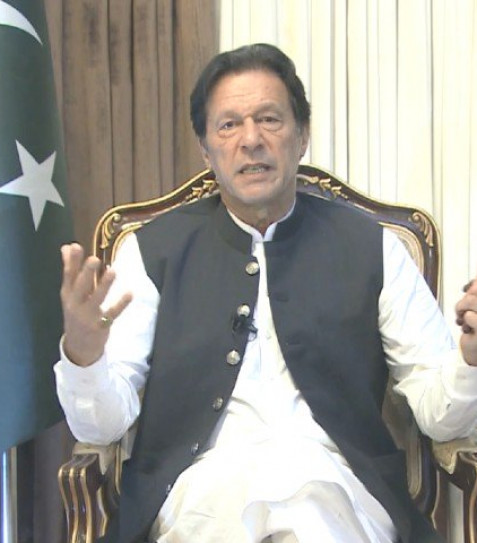"On the invitation of President Ashraf Ghani, Prime Minister Imran Khan will visit Kabul on November 19, 2020," the a statement issued by the Foreign Office said. "The prime minister’s delegation will comprise Foreign Minister Shah Mehmood Qureshi, Adviser for Commerce and Investment, and other senior officials."
The day-long visit to Kabul would be PM Imran's first since assuming office in August 2018.
According to the communique, the premier's programme includes tete-e-tete with President Ashraf Ghani, delegation-level talks, and joint press stake-out. The focus would be on further deepening the fraternal bilateral relations between Pakistan and Afghanistan, the Afghan peace process, and regional economic development and connectivity.
The prime minister’s visit was part of regular high-level exchanges between Pakistan and Afghanistan. President Ashraf Ghani had last visited Pakistan in June 2019.
Earlier, the two leaders had a bilateral meeting on the sidelines of the 14th OIC Summit in Makkah in May 2019. The prime minister also had a telephonic conversation with President Ashraf Ghani in September 2020.
"The Prime Minister’s visit builds on the sustained engagement between the two countries in recent months for enhancing bilateral cooperation in diverse fields," the statement maintained.
The MoFA further added that besides Foreign Minister Shah Mehmood Qureshi's regular exchanges with his Afghan counterpart, there had recently been important visits from Afghanistan to Pakistan of Chairman High Council for National Reconciliation (HCNR) Dr Abdullah Abdullah, Speaker Afghan Wolesi JirgaRahman Rahmani, and Commerce Minister Nisar Ahmad Ghoraini.
On August 13, 2020, the Second Review Session of the Afghanistan Pakistan Action Plan for Peace and Solidarity (APAPPS) was held in Kabul, it added.
"As part of this process, and in the run-up to the prime minister’s forthcoming visit, Adviser Commerce and Investment Razaq Dawood visited Kabul on 16-18 November 2020 and held in-depth discussions on bilateral trade and investment ties and matters related to transit trade," it added.
The statement concluded stating that the people of Pakistan and Afghanistan were linked through immutable bonds of history, faith, culture, kinship, values and traditions. The PM's visit would help foster a stronger and multi-faceted relationship between the two brotherly countries.
On November 15, it was reported that PM's visit comes at a crucial juncture as intra-Afghan talks are making little progress with continued violence in Afghanistan making the process further complicated.
What added to the already complex situation is the election of Joe Biden as new president of the United States.On paper, there appears to be little difference between President Trump and president-elect Biden as both seek the withdrawal of US troops from Afghanistan.However, unlike Trump, the incoming US president would likely seek more orderly withdrawal and may set his own terms with the Afghan Taliban.The Taliban on the other hand hoped that the new US administration would stick to the agreement reached between them and Washington on February 29 in Doha.
The landmark deal envisages a timeline for the US troops’ withdrawal from the war-torn country in return for Taliban agreeing to not allow its soil to be used by terrorist groups.The US-Taliban deal follows intra-Afghan dialogue that would seek consensus among all Afghan groups on the future political dispensation of Afghanistan.The several rounds between the Taliban and Afghan government negotiators have yet to make any major headway while the violence continues to wreak havoc in the country.There have been calls for ceasefire but the Taliban have so far refused to agree on it, saying the truce would be part of the overall agreement to be reached through intra-Afghan talks.Islamabad had played a key part in brokering the ongoing peace process, something that has been acknowledged both by Kabul and Washington.
































